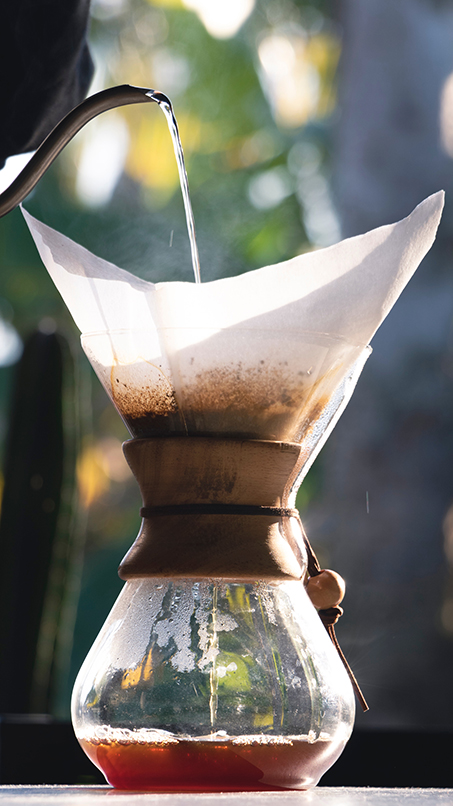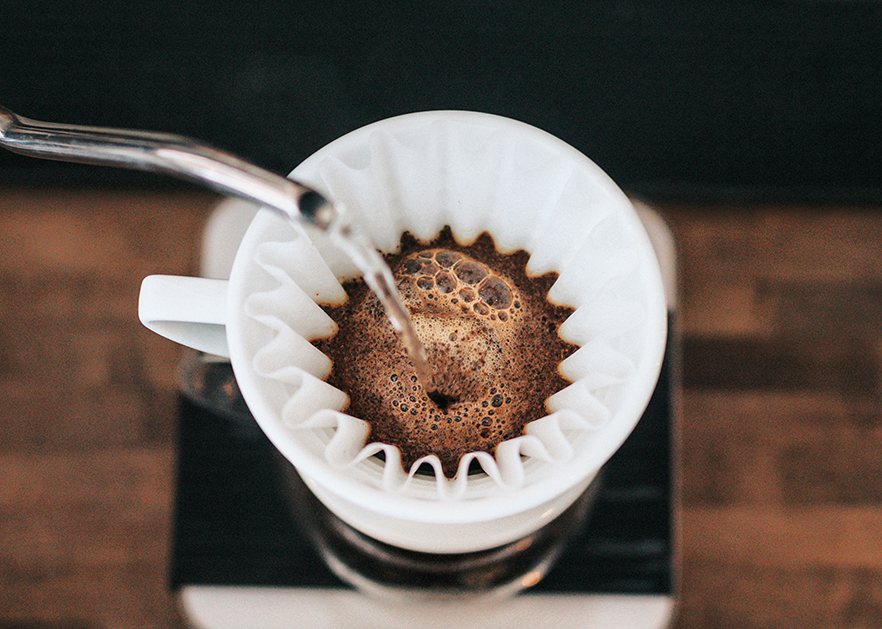Coffee brewing is an art that requires precision and an understanding of various factors that contribute to the perfect cup.
One such crucial factor is water quality. The quality of water used in brewing coffee can significantly influence your coffee’s taste, aroma, and overall experience.
Read on and find out all about the impact of water quality on coffee brewing.
| Key Takeaways | |
|---|---|
| 1 | The quality of water used in brewing coffee significantly influences the taste, aroma, and overall experience of your coffee. Factors such as pH, mineral content, hardness, temperature, and filtration all play a crucial role. |
| 2 | Medium-hard water with a balanced mineral content and a neutral pH is generally the best for coffee brewing. Water that is too hard or too soft can lead to over-extraction or under-extraction, respectively, affecting the taste of the coffee. |
| 3 | Using filtered water for coffee brewing can enhance the quality of your coffee. It helps remove impurities and contaminants from the water, ensuring that the water is clean and pure. Certain types of water filters can also help adjust the mineral content and pH of the water. |
The Importance of Water Quality in Coffee Brewing: Factors
Water is the main ingredient in coffee, making up about 98% of your cup. Therefore, the quality of water used in brewing coffee is of utmost importance. The purity, mineral content, hardness, and pH of water affect the extraction process, influencing how the flavors and aromas of the coffee are drawn out from the beans.

The Role of pH in Coffee Brewing
The pH of water affects the extraction of flavors and the overall taste of the coffee. The pH scale ranges from 0 to 14, with 7 being neutral. Anything below 7 is acidic, and anything above 7 is alkaline.
When brewing coffee, using water with a neutral pH is generally recommended. It is because water that is too acidic or too alkaline can interfere with the extraction process.
Acidic water can lead to under-extraction, resulting in a sour and underdeveloped coffee. On the other hand, alkaline water can lead to over-extraction, resulting in a bitter and overly strong coffee.
Therefore, maintaining a neutral pH in your brewing water is crucial for achieving a balanced and flavorful cup of coffee. It allows for optimal extraction of the coffee flavors, ensuring the coffee is neither bitter nor sour.
The Impact of Mineral Content on Coffee Taste
The mineral content of water, particularly the levels of magnesium and calcium, can significantly impact the taste of your coffee, enhancing the extraction of flavor compounds from coffee beans.
Magnesium tends to enhance the extraction of the coffee’s fruity and acidic notes, while calcium brings out the coffee’s bitterness. However, too many minerals can lead to over-extraction, resulting in a bitter or overly strong coffee. On the other hand, water with low mineral content can lead to under-extraction, resulting in a flat and underwhelming coffee.
In sum, using water with the right balance of minerals for coffee brewing is essential. It will ensure optimal extraction of the coffee flavors, leading to a balanced and flavorful cup of coffee.
The Effect of Water Hardness on Coffee Brewing
Water hardness refers to the amount of calcium and magnesium in the water. It can significantly affect the brewing process and the taste of the coffee. Soft water can under-extract the coffee, leading to flat and underwhelming coffee. In contrast, hard water can over-extract the coffee, resulting in a bitter and unpleasant brew.
Using water with medium hardness for coffee brewing is recommended. It will ensure optimal extraction of the coffee flavors, leading to a balanced and flavorful cup of coffee.
The Influence of The Water Temperature on Coffee Brewing
Water temperature is another crucial factor in coffee brewing. It affects the rate of extraction and the overall taste of the coffee. Water that is too hot can over-extract the coffee, leading to a bitter and overly strong coffee. On the other hand, water that is too cold can under-extract the coffee, resulting in a sour and underdeveloped coffee.
The perfect water temperature for coffee brewing is 195 to 205 degrees Fahrenheit. This temperature range allows for optimal extraction of the coffee flavors, ensuring the coffee is neither bitter nor sour.

The Importance of Water Filtration in Coffee Brewing
Water filtration plays a significant role in coffee brewing. It helps remove impurities and contaminants from the water, ensuring it is clean and pure. Impure water can negatively affect the taste of the coffee, leading to an off or unpleasant taste.
Moreover, certain types of water filters can also help adjust the mineral content and pH of the water, further enhancing the quality of the brewing water. Therefore, using filtered water for coffee brewing can help achieve a cleaner, more flavorful, and more aromatic cup of coffee.
Conclusion
In the coffee brewing journey, water quality plays a pivotal role. The pH, mineral content, hardness, temperature, and filtration of water are all critical factors that can significantly influence the taste and quality of your coffee. Understanding and controlling these factors can enhance your coffee brewing experience and consistently brew a perfect cup.
Whether you are a professional barista or a home coffee enthusiast, paying attention to the quality of your brewing water can make a difference. The next time you brew a coffee, remember that the water quality used is just as crucial as the quality of the beans used.
FAQs
What is the best water quality for coffee?
The best water for coffee brewing is clean, pure, and has a balanced mineral content. It should have a neutral pH, medium hardness, and an ideal temperature between 195 to 205 degrees Fahrenheit. Using filtered water can also enhance the quality of your coffee.
Is hard or soft water better for a coffee maker?
Medium-hard water is generally better for coffee makers. Hard water can lead to scale build-up in your coffee maker, while soft water can lead to under-extraction, resulting in a flat and underwhelming coffee. However, the ideal water hardness can vary depending on the coffee type and the brewing method.
Is soft or hard water better for coffee?
Medium-hard water is generally better for coffee. Hard water can over-extract the coffee, leading to a bitter and unpleasant brew, while soft water can under-extract the coffee, resulting in a flat and underwhelming coffee.
Does hard water ruin coffee?
Hard water can negatively impact on the taste of your coffee. It can over-extract the coffee, leading to a bitter and unpleasant brew. Moreover, hard water can lead to scale build-up in your coffee maker, affecting its performance and lifespan.
Does more water mean stronger coffee?
No, more water does not mean stronger coffee. Adding more water can dilute the coffee, making it weaker. The coffee ratio to water, the grind size, and the brewing method determine the strength of the coffee. If you need a stronger cup, use more coffee grounds or a finer grind size, not more water.

Written by Carla – Coffee Writer and Researcher at MyCoffeeBeanz.com
Carla has a long association with coffee and one of her fondest childhood memories is the wonderful aroma of coffee beans ground daily by her Italian father to start his working day. As a full time writer and researcher in the coffee industry, Carla is committed to providing well researched and written coffee-related content for our readers. More about Carla
